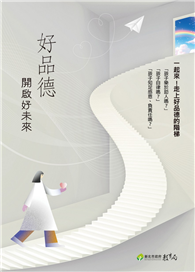The book presents Winfried Georg Sebald and Ian McEwan as paradigmatic post-imperial writers who enmeshed in the hierarchies of power inherited from their imperial times, strive to disentangle themselves from that burdensome legacy. To achieve this, they undertake a subtle detachment from the analogously implicated subject positions of their protagonists. In Sebald’s works, these positions are closer to the historical victims of the Third Reich who used to suppress their past experiences, whereas in McEwan’s works, they incline toward the systemic ’beneficiaries’ of the British Empire who used to overlook their present privileges. However, in distinction to their protagonists’ denied involvements, both authors recognize their implication in their protagonists’ pasts and presents. Such a detachment from familiar protagonists requires the consent of unknown and scattered readers with whom they forge a long-distance solidarity, connective association or complicitous alliance. Thus, to exempt themselves from one complicity, they enter another one.
| FindBook |
有 1 項符合
Perpetrators’ Legacies: Post-Imperial Condition in Sebald and McEwan的圖書 |
 |
Perpetrators’ Legacies: Post-Imperial Condition in Sebald and McEwan 作者:Biti 出版社:Routledge 出版日期:2024-10-15 語言:英文 規格:精裝 / 246頁 / 普通級/ 初版 |
| 圖書館借閱 |
| 國家圖書館 | 全國圖書書目資訊網 | 國立公共資訊圖書館 | 電子書服務平台 | MetaCat 跨館整合查詢 |
| 臺北市立圖書館 | 新北市立圖書館 | 基隆市公共圖書館 | 桃園市立圖書館 | 新竹縣公共圖書館 |
| 苗栗縣立圖書館 | 臺中市立圖書館 | 彰化縣公共圖書館 | 南投縣文化局 | 雲林縣公共圖書館 |
| 嘉義縣圖書館 | 臺南市立圖書館 | 高雄市立圖書館 | 屏東縣公共圖書館 | 宜蘭縣公共圖書館 |
| 花蓮縣文化局 | 臺東縣文化處 |
|
|
內容簡介
作者簡介
Vladimir Biti is Chair Professor Emeritus of Comparative Literature at the University of Vienna. He is the author of eleven books, with Tracing Global Democracy: Literature, Theory, and the Politics of Trauma, 2016 (second, paperback edition 2017), Attached to Dispossession: Sacrificial Narratives in Post-imperial Europe, 2018, and Post-imperial Literature: Translatio Imperii in Kafka and Coetzee, 2022 (paperback edition forthcoming) among the most recent. He is the editor of the volumes Reexamining the National-Philological Legacy: Quest for a New Paradigm, 2014, Claiming the Dispossession: The Politics of Hi/storytelling in Post-imperial Europe, 2017, and co-editor of The Idea of Europe: The Clash of Projections, 2021. He is co-editor of Arcadia: Journal of Literary Culture and Honorary President of the ICLA Committee on Literary Theory. From 2016-2022, he has been the Chair of the Academy of Europe’s Literary and Theatrical Section.
Postcolonial Stylistics
Chaucer’s Ethical Philosophy
Potter Stinks: Gender and Species in J. K. Rowling’s Harry Potter Series
Potter Stinks: Gender and Species in J. K. Rowling’s Harry Potter Series
Conjuring the Haint: The Haunting Poetics of Black Women
Conjuring the Haint: The Haunting Poetics of Black Women
Migration Literature in Translation: From U.S. Latinx Texts to Transnational Readers
Emporialism: Department Store Fictions and the Politics of the Mediterranean
Freedom Is Not Enough: T. S. Eliot for Liberation, Resistance, and Hope
|











